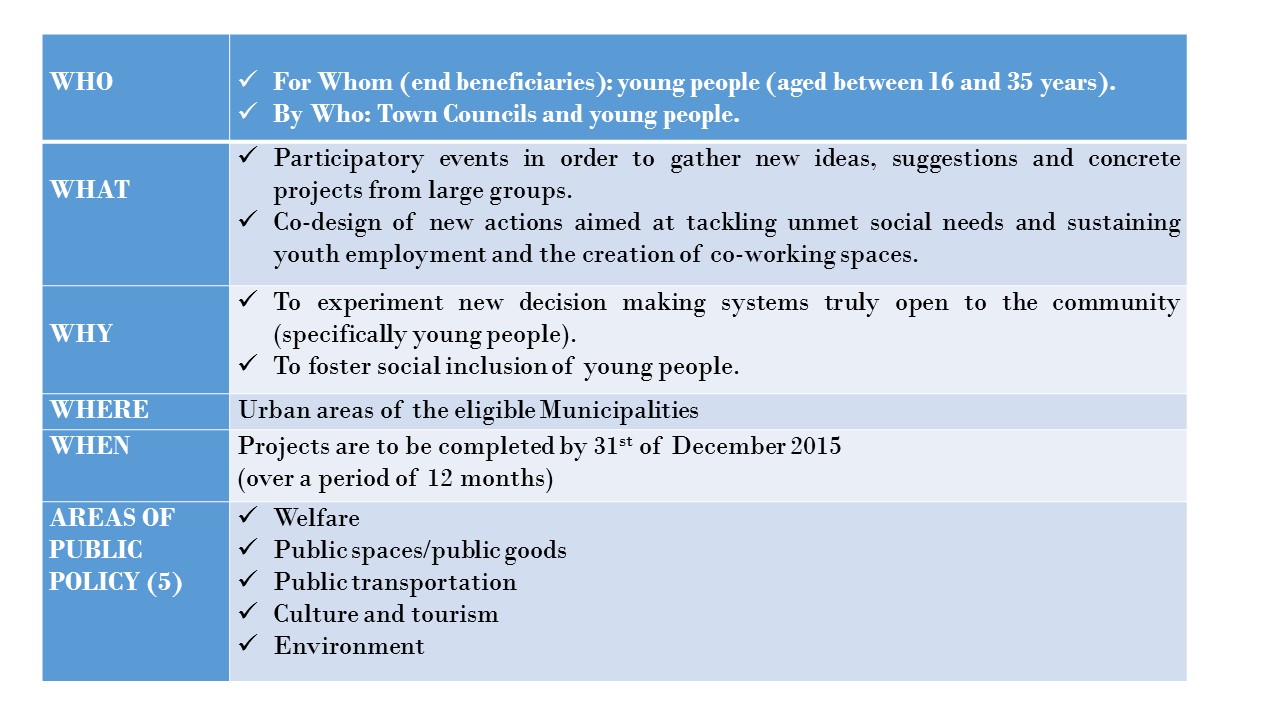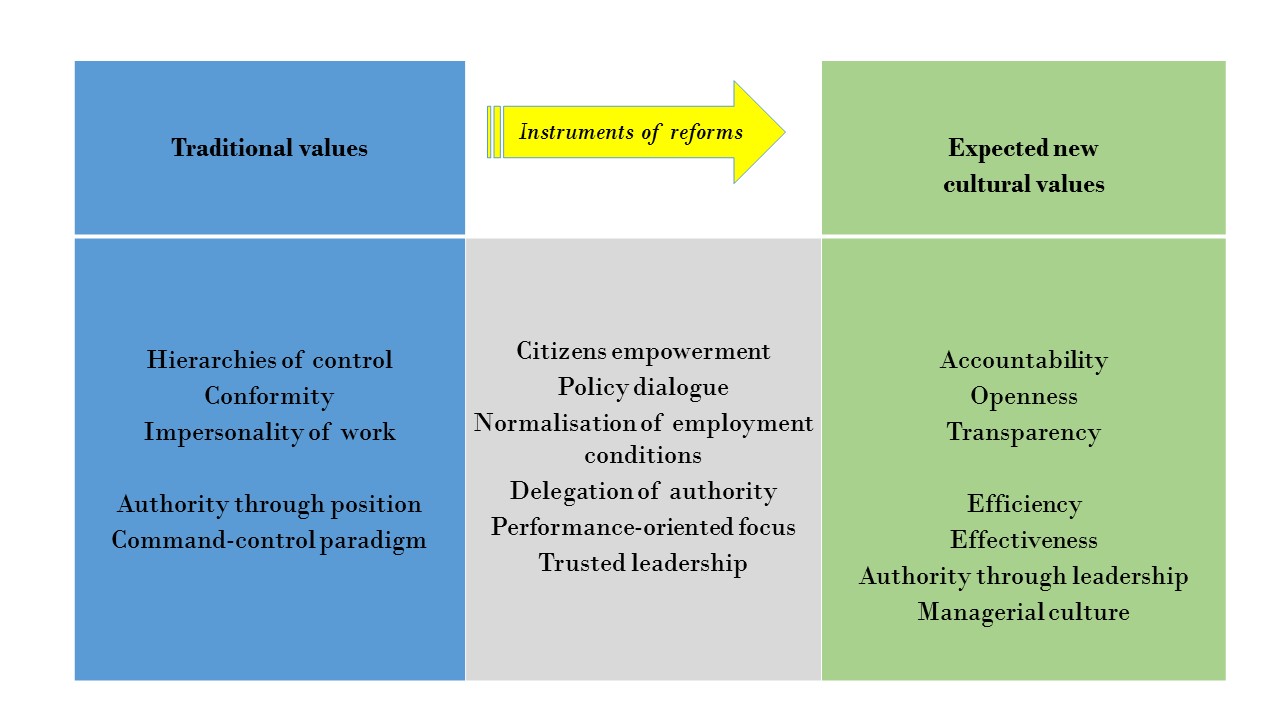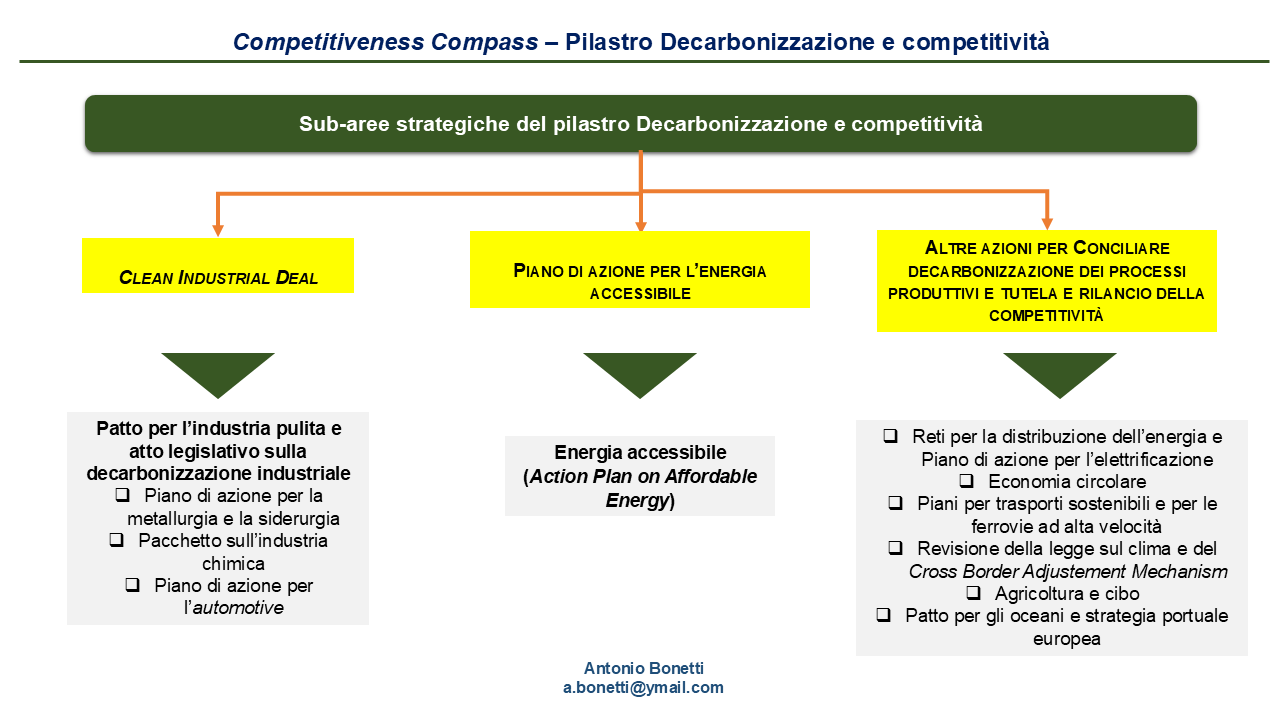The Programme ‘MeetYoungCities’
The Italian Agency for Youth Affairs (Agenzia Nazionale per i Giovani – ANG), the National Association of Italian Municipalities (Associazione Nazionale dei Comuni Italiani – ANCI) and the Institute of Local Finance signed on 23rd July 2014 the Action Programme ‘MeetYoungCities: Social innovation e partecipazione per i giovani dei Comuni italiani’.
Within the framework of this Action Programme, the abovementioned Institutions launched a call for proposals in October.
The intent of the call is to boost social innovation and the participation of young people aged between 16 and 35 years in the co-design and implementation of new or renewed social services (aimed at young people) or in the formulation of new initiatives able to favour the recovery and a ‘smarter’ use of public spaces/buildings.
The following chart summarises the objectives of the call and the general structure of the eligible projects.
Chart 1- Outline of the call
The Programme as a catalyst for open government
The outline of the prerequisites of the proposals allows me to highlight two important points:
- the Programme itself is a further incentive for Italian Town Councils to innovate their decision making processes and policies according to the “smart cities” paradigm. This paradigm implies not only a wide use of Future Emerging Technologies, such as smart grids and sensors, but also a large involvement of the community in the design of new public actions.
Actually, potential beneficiaries are only those Town Councils which joined the National Observatory on Smart City (‘Osservatorio Nazionale sulla Smart City’), established by the ANCI in July 2012, - the Programme and the call for proposal are clearly informed on new concepts of public government, such as open data, civic engagement in the decision making process and co-design of public policies and services.
The chart below clearly shows how the traditional principles of public government are changing as a result of internal reforms (‘new public management’), and external pressures for greater effectiveness and openness.
Chart 2- Cultural transformation in government
Source: Huerta Melchor O. (2008), “Managing Change in OECD Governments: An Introductory Framework”, OECDWorking Papers on Public Governance, No. 12, OECD Publishing, p. 15
As demonstrated by the aforementioned call for proposals, these concepts, already rooted in other European countries, fortunately, are currently gaining momentum in Italy too, albeit Italian reforms of the Public Sector are generally faced with many obstacles.











